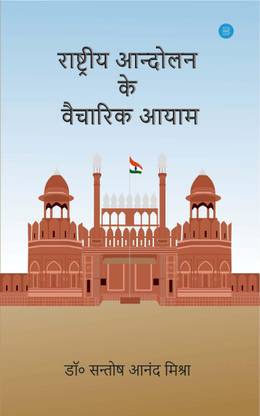Raja Ram Mohan Roy (22 May 1772 – 27 September 1833)
Introduction
Raja Ram Mohan Roy (1772–1833) was a pioneer of the Indian Renaissance, a great social reformer, educationist, religious thinker, and journalist. He made continuous efforts to free Indian society from superstitions, blind faith, and social evils. For his significant contributions to laying the foundation of modern India, he is regarded as the "Father of Modern India."
Birth and Early Life
Raja Ram Mohan Roy was born on 22 May 1772 in Radhanagar village of Hooghly district in Bengal, into a Brahmin family. His father's name was Ramakanta Roy and his mother's name was Tarini Devi. From an early age, he exhibited intelligence, logical thinking, and independent reasoning. He deeply studied Sanskrit, Arabic, Persian, Hindi, and English.
Education
Roy received his Sanskrit education in Varanasi and studied Arabic and Persian in Patna. He explored the Quran, the Bible, the Upanishads, the Vedanta, and Islamic philosophy. This led to the development of a balanced and rational view toward different religions. He was also influenced by the writings of English philosophers such as John Locke, David Hume, and Rousseau.
Religious Reforms
Ram Mohan Roy raised his voice against idol worship, superstitions, and ritualism. Based on the Vedas and Upanishads, he emphasized the worship of a formless, omnipresent God. In 1828, he founded the Brahmo Samaj, which became a leading movement for religious reform in India. The Brahmo Samaj opposed caste discrimination, untouchability, child marriage, and the oppression of women.
Social Reforms
He fought against the practices of sati, polygamy, child marriage, caste system, and purdah. He advocated for women’s rights and supported widow remarriage. His role was pivotal in the abolition of the sati system, and with the support of Lord William Bentinck, the practice was legally banned in 1829.
Contributions to Education
Raja Ram Mohan Roy supported the introduction of modern education in India. He urged the inclusion of English, mathematics, science, and Western philosophy in the Indian education system. In 1817, along with David Hare, he established the Hindu College, which became a center of modern education. He also founded Sanskrit College and Vedanta College.
Journalism and Writings
Ram Mohan Roy is considered the father of modern Indian journalism. He edited and published several journals, including:
- Sambad Kaumudi (in Bengali)
- Mirat-ul-Akhbar (in Persian)
- The Brahmanical Magazine (in English)
Through these publications, he raised awareness about social reform, freedom, religious tolerance, and education.
Political Views
Ram Mohan Roy advocated for reforms in the British East India Company's governance and demanded political rights for Indians. He supported freedom of the press and civil liberties. He was the first Indian to raise India’s voice in the British Parliament.
Final Years and Death
In 1830, he traveled to England as an ambassador of Mughal Emperor Akbar II. There, he supported Indian culture, society, and national interests. On 27 September 1833, he passed away in Bristol, England, where he was laid to rest.
Legacy and Impact
Roy's ideas and actions inspired future leaders like Swami Vivekananda, Ishwar Chandra Vidyasagar, and Mahatma Gandhi. His reform movements paved the way for India’s modernization and progress.
Conclusion
Raja Ram Mohan Roy was not just a social reformer but a visionary leader of India’s modern renaissance. He laid the foundation for revolutionary changes in religion, society, education, and politics. His life remains a beacon of light in Indian history, guiding future generations toward humanity, reason, and progress.












0 Comments
Thank you